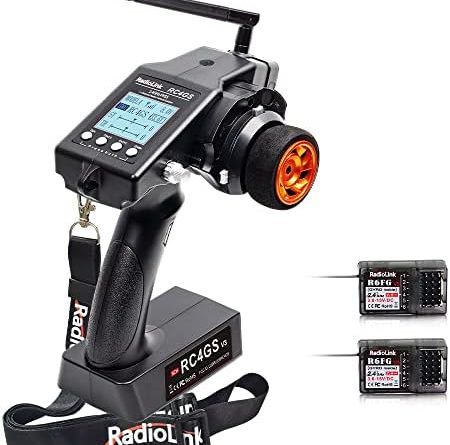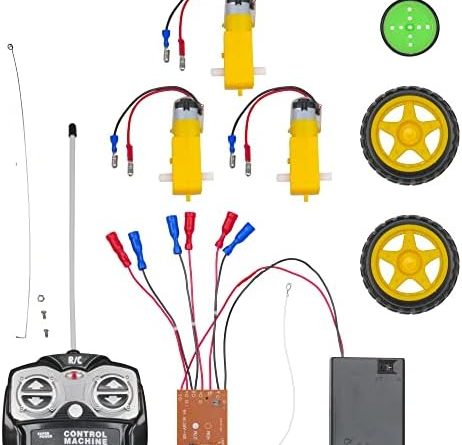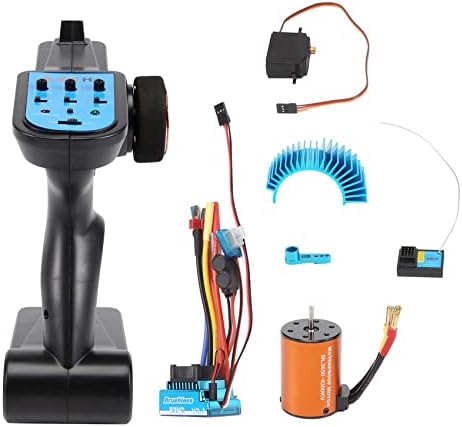




RC Car 7.4V Battery Charger: What You Need to Know
When you are a remote control car lover, nothing beats the thrill of racing your rc car and the adrenaline rush of driving it. The longevity of your rc car largely depends on the quality and durability of the battery and the charger you use. The battery is the life of your remote control car, and it needs to be charged regularly to deliver top-notch performance. In this comprehensive guide, we will take you through everything you need to know about the RC Car 7.4V Battery Charger.
What Is An RC Car 7.4V Battery Charger?
An RC car 7.4V battery charger is simply a device that delivers the necessary charge to the battery of your remote control car. The battery charger is designed to charge a variety of battery packs, such as NiMH, NiCd, and LiPo.
Is It Possible To Charge Different Types of Batteries With The Same Charger?
RC Car 7.4V battery chargers are flexible and can accommodate a variety of battery types. As such, you can charge different types of batteries with the same charger. The charger’s specifications show the supported battery types and the required charging current.
What Is the Charging Time For A 7.4V RC Car Battery?
The charging time of a 7.4V RC car battery varies based on different factors such as the battery capacity, charging current, and charger type. However, in general, a 7.4V battery will take approximately 1.5 hours to charge fully with a 1C charge rate.
How Do I Know When The Battery Is Fully Charged?
Usually, an indicator light on your charger will turn green when the battery is fully charged. Additionally, the charger should automatically switch to a trickle or maintenance charge to ensure that the battery does not get overcharged.
What Are The Different Types of Chargers?
There are three different types of chargers, namely Linear chargers, Switching chargers, and Pulse chargers. Linear chargers are the simplest and most basic form of the charger and are less expensive than the other types. However, linear chargers take a lot more time to charge the battery. Switching chargers are more advanced than linear chargers and are faster at charging the battery. They are also more expensive than linear chargers. Finally, pulse chargers are the fastest and most advanced chargers of the three types, and they use pulse charging technology to charge the battery as quickly as possible.
What Are The Factors To Consider When Choosing The Right Charger?
When choosing a charger, there are several factors to consider, such as the type of battery, charging speed, charger type, and price. Additionally, the charger’s power source, compatibility, and ease of use are factors that can also affect your choice.
Conclusion
In summary, there are many things to consider when choosing an RC car 7.4V battery charger. We hope this comprehensive guide has given you a better understanding of the charger and the factors to consider when making the right choice. Remember, the charger plays a crucial role in the longevity and performance of your remote control car, so choose wisely. Happy racing!
FAQs
Q. What is the difference between a LiPo battery and a NiMH battery?
A. LiPo batteries have higher energy density and can deliver more power than NiMH batteries.
Q. Can you charge a LiPo battery with a NiMH charger?
A. It is not recommended as LiPo batteries require a different charging process than NiMH batteries.
Q. How often should I charge my RC car battery?
A. It depends on the frequency of use. It is recommended to charge the battery after every use to ensure optimal performance.
Q. Can I use a higher voltage charger for my RC car battery?
A. It is not recommended as using a higher voltage charger can damage the battery, resulting in reduced battery life.
Q. Can I charge my RC car battery while it’s still connected to the car?
A. It is not recommended as it can damage both the battery and the charger. Always remove the battery from the car before charging.
Price: $15.99
(as of Jun 02, 2023 00:36:03 UTC – Details)







